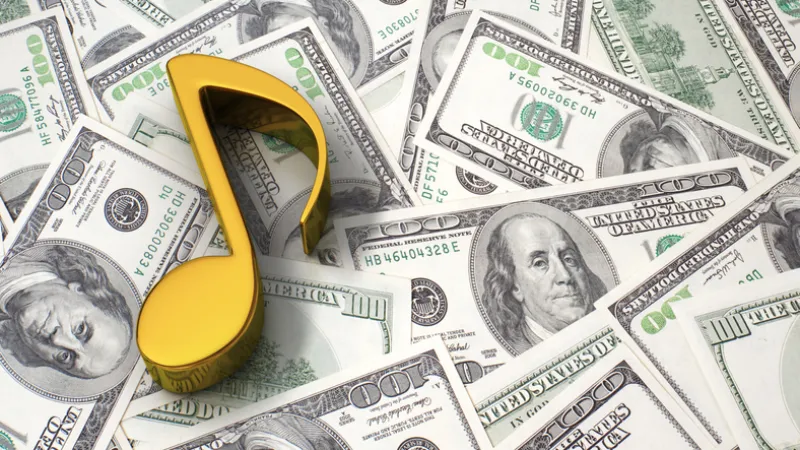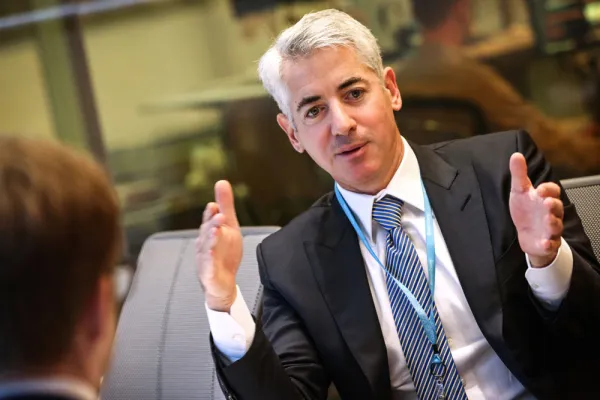When Pershing Square CEO Bill Ackman first announced his intention to take a stake in an upcoming IPO of Universal Music Group in 2021 he admitted that he had fallen in love with the company — and even had a personal relationship with it. His grandfather, who had a brief career as a popular songwriter, actually sold a tune that was in the Universal Music archives.
But the hedge fund manager’s love affair with Universal Music has been somewhat tempestuous — and this year is costing him dearly.
“We’re certainly an underperformer relative to the stock market,” he told investors on Pershing Square Holdings’ third quarter call Thursday, noting that one of the stocks “holding back” the hedge fund’s performance is Universal Music. He said Universal Music, Pershing Square’s biggest holding by several multiples, is down year to date approximately 14 percent.
As a result, Ackman’s publicly traded hedge fund is having its second-worst year since 2018. The fund was up only 7.9 percent through November 20, while the S&P 500 has been on a tear having gained more than 25 percent this year. Moreover, the stock price of Pershing Square Holdings is flat to slightly negative for the year, depending on the venue, which include Amsterdam, London and the U.S. (The stock has always traded at a big discount to net asset value, and that discount currently hovers around 35 percent.)
In 2021 Ackman planned to invest some of the proceeds of his special purpose acquisition company, Pershing Square Tontine Holdings, in a partial spinoff of Universal Music from French conglomerate Vivendi. “It was love at first sight,” he told investors in the SPAC when the plan was announced. “Universal was the perfect business.” He said it “checked every box” so he “dug in.”
The SPAC investors balked, and the Securities and Exchange Commission eventually nixed the deal, leading Ackman to invest $2.9 billion of his hedge funds’ assets into the Universal Music IPO. He raised an additional $1.1 billion from other investors to come up with the total required to keep the commitment he had made to Vivendi for 10 percent of the new company.
At more than $4 billion, the investment dwarfs his other positions. The next largest is the $1.7 billion stake in Brookfield, which Pershing Square has taken this year.
To be sure, Pershing Square has profited from Universal Music over time. Ackman said Thursday that Pershing Square paid 18.30 euros per share for its stake — which comes to $19.17 at today’s exchange rate. (The fund has also received dividends of about 2 percent annually.) But Universal stock is currently trading below $22 per share on the Amsterdam stock exchange, after falling around 25 percent following its second quarter earnings report this summer. At that time Universal Music said that its streaming and subscription business growth, which typically ran around 11 percent annually, had fallen to 4 percent for the quarter. During the third quarter, that metric rose to 6 percent — but didn’t help the stock much.
Earlier this month, Ackman went on X to propose a plan he thought would boost Universal Music’s stock price. He said he would force Universal Music to move its listing to the New York Stock Exchange or Nasdaq, which would allow it to become a part of the S&P 500 and benefit from passive investment flows into index funds. Ackman has long wanted such a listing, but the other owners of Universal Music have wanted to keep the listing in Amsterdam for tax reasons. (Almost 48 percent of the shares are held by insiders.)
Ackman claimed he had a contractual right to force the listing, but the company quickly denied that was the case. “Pershing has the right to request a listing in the U.S. subject to a Pershing entity selling at least $500 million in UMG shares as part of the listing,” the company said in a statement the day after Ackman’s post on X. “Pershing does not have any right to require UMG to become a U.S.-domiciled company or delist from Euronext Amsterdam.”
In his call with investors Thursday, Ackman did not mention moving Universal Music’s listing to the U.S.







